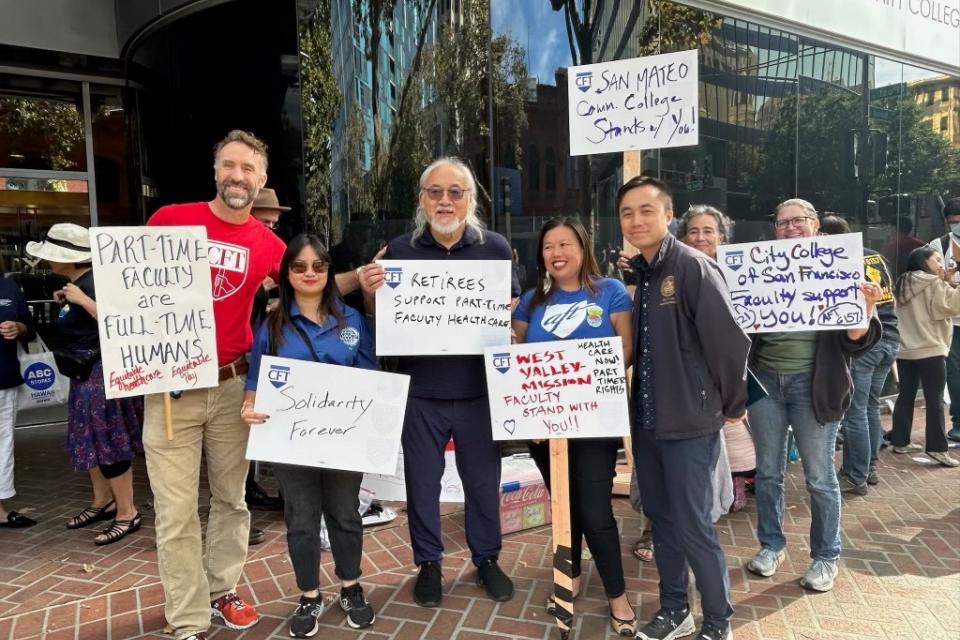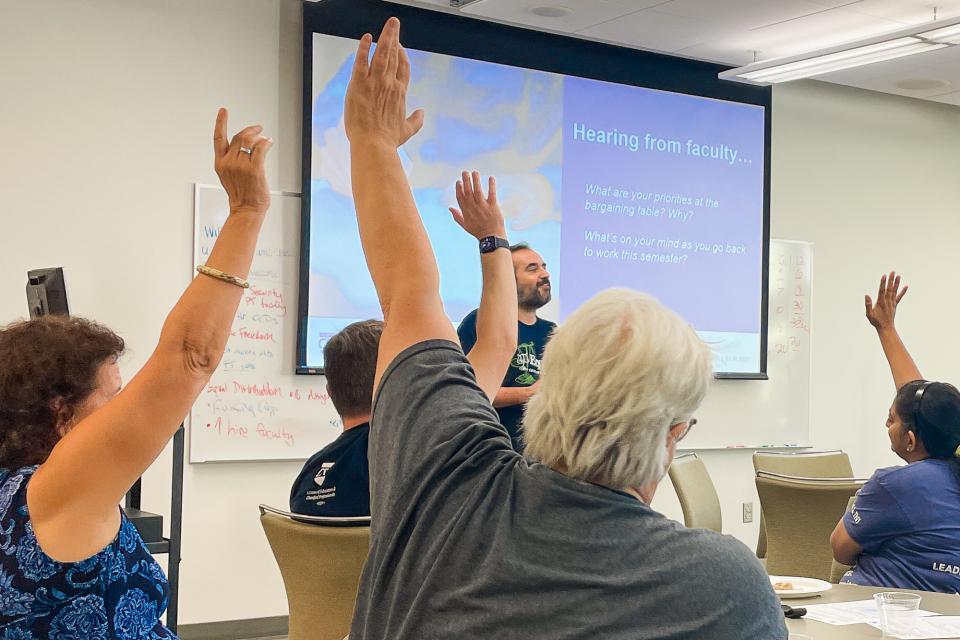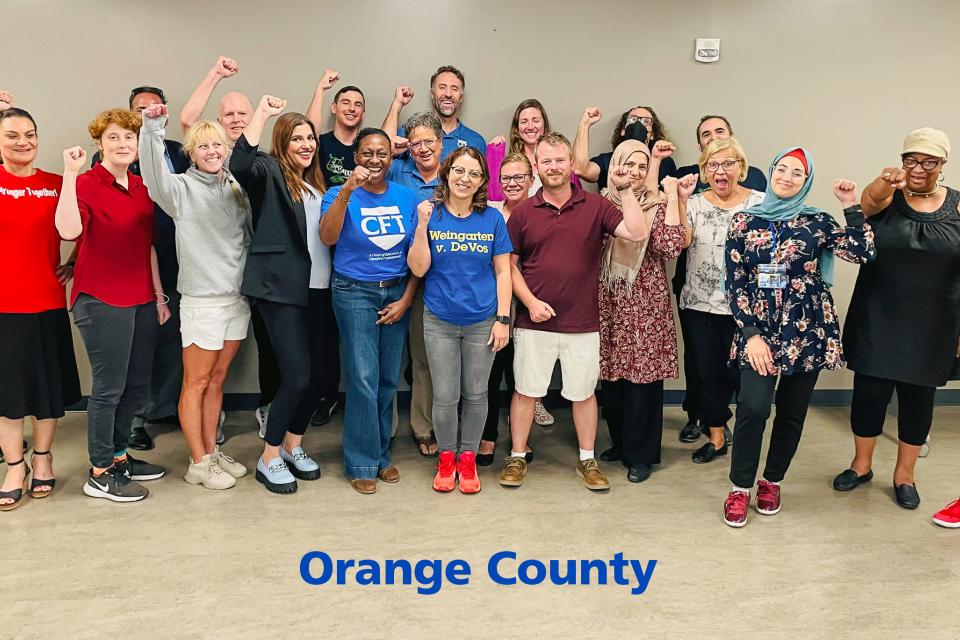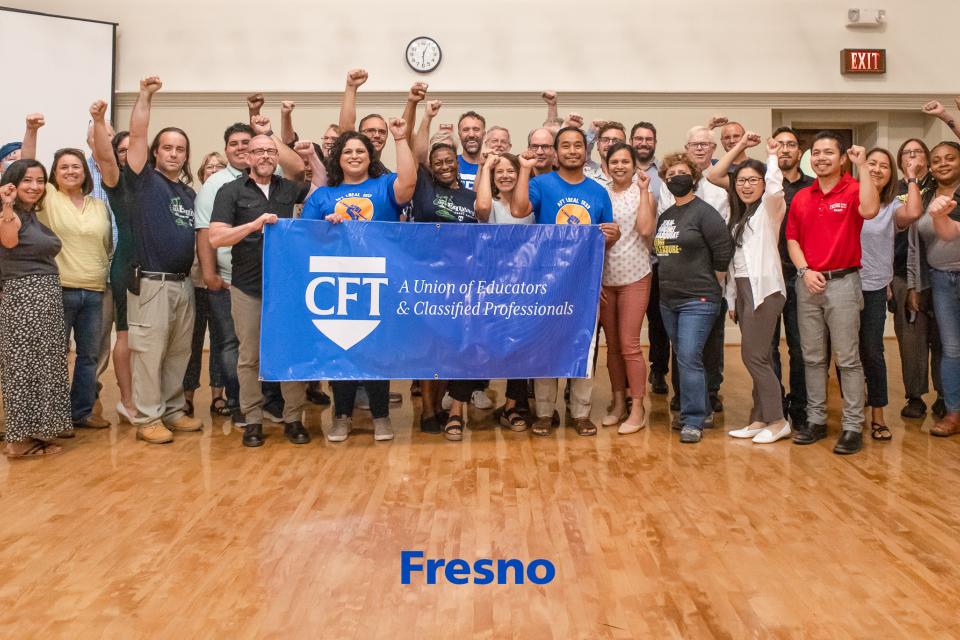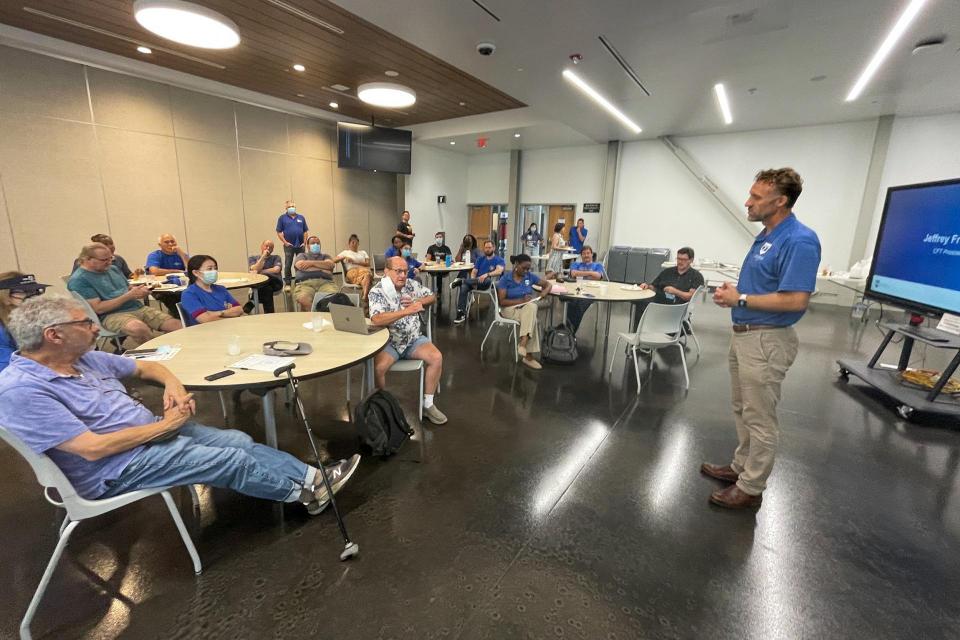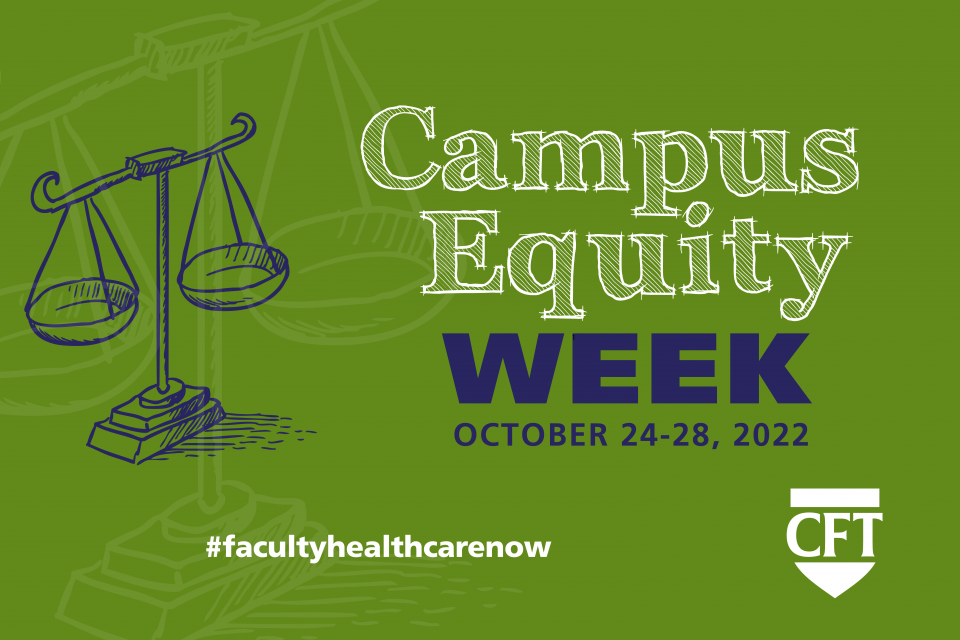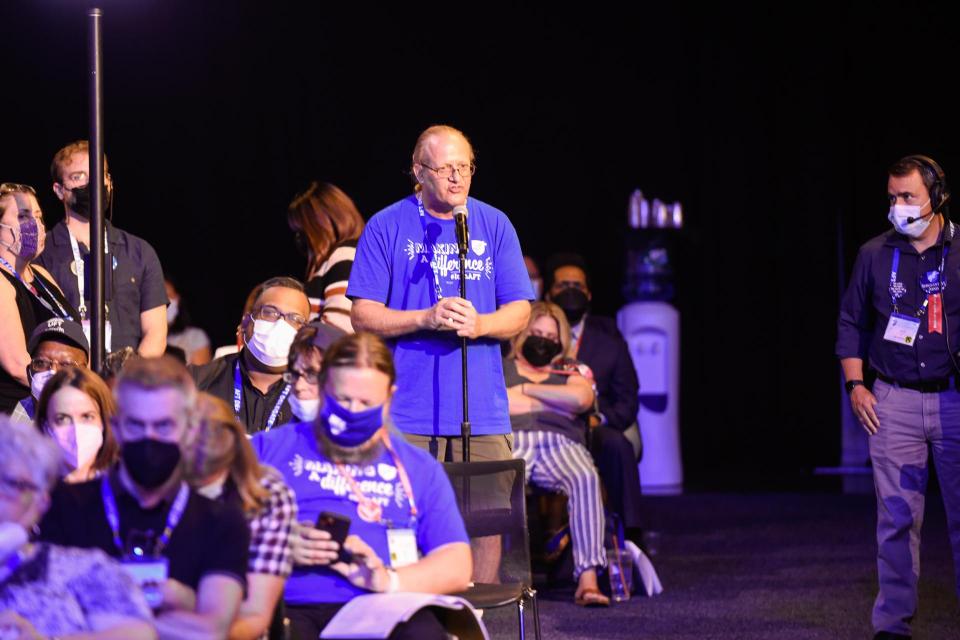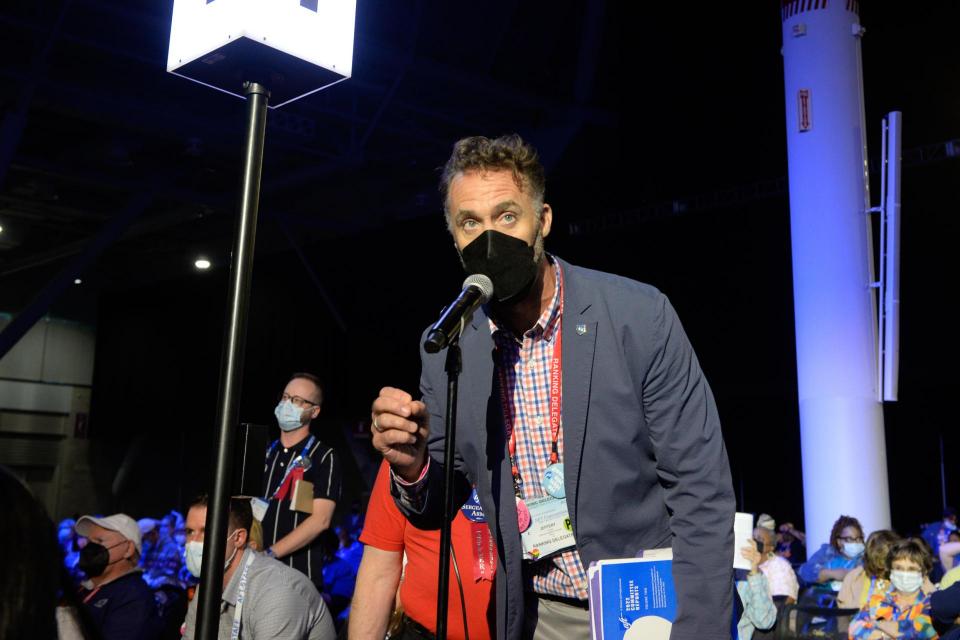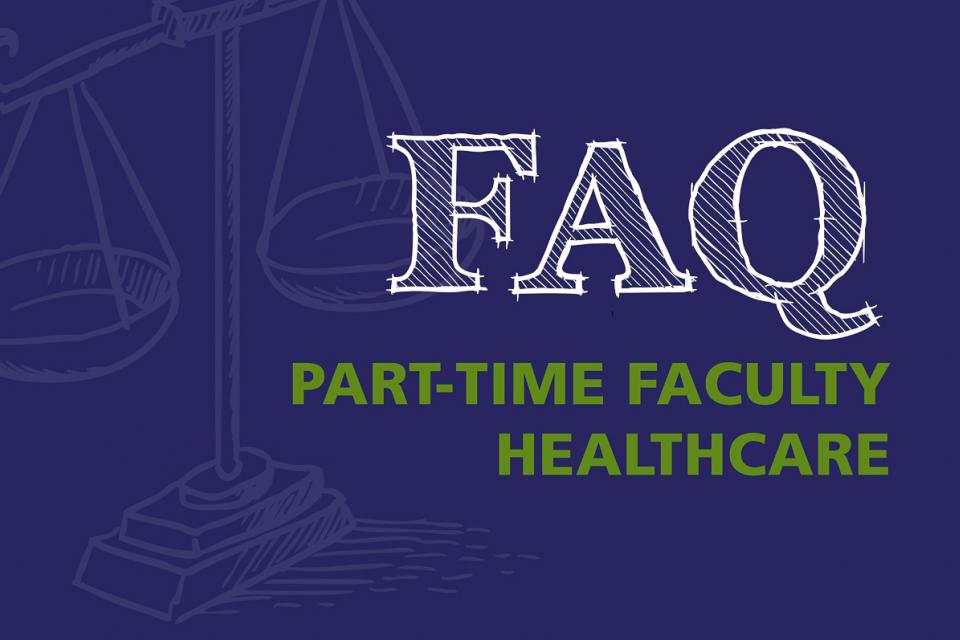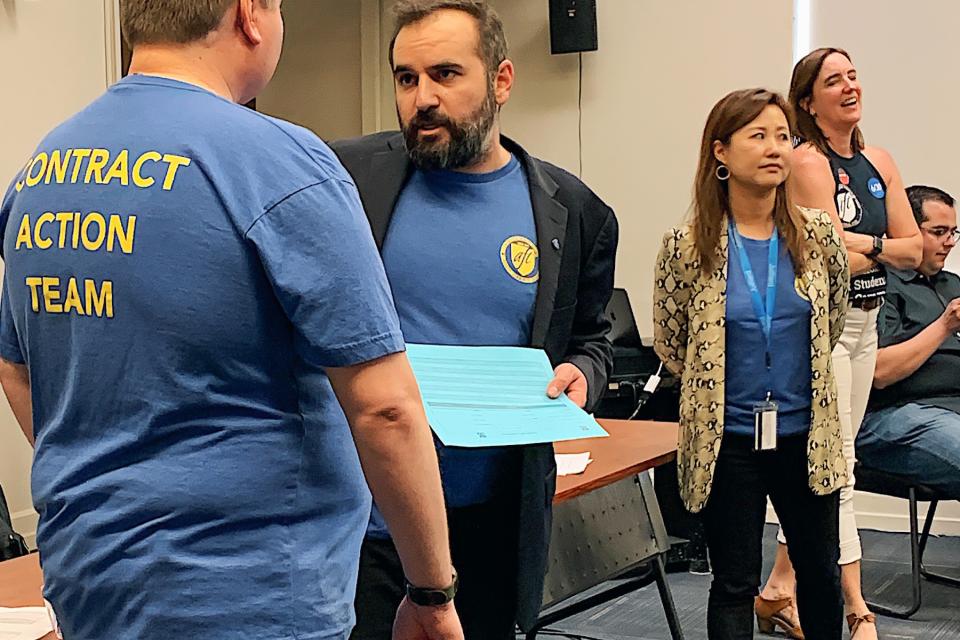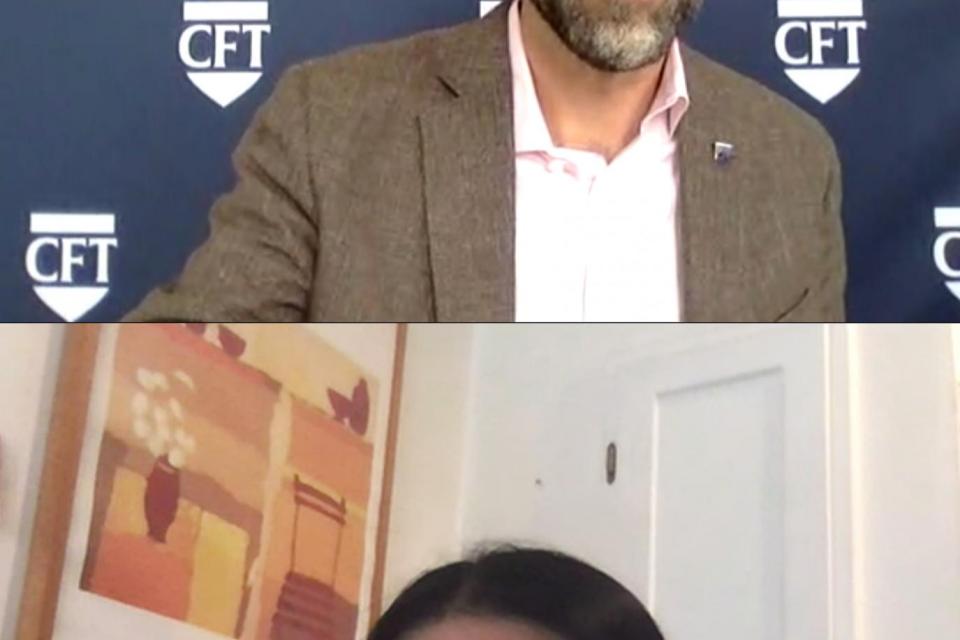Topic: Healthcare Reform
Bittersweet Legislative Year for CFT Part-time Faculty
Bittersweet would best describe the end results of the 2022-2023 legislative season for community college part-time faculty.
One of the clear positives was the realization of a record 8.22% cost-of-living allowance for California Community Colleges, up .09% from Governor Newsom’s initial proposal of an 8.13% COLA in January. The COLA followed off a fairly robust COLA of 6.56% in 2021-2022.
Part-time Faculty Healthcare Precarity in Two Profiles
A summer vacation and the birth of a child should create happy memories, but for Trevor Krapf and Jennifer Wu, the reality of being part-time and having tenuous healthcare turned both their experiences into financially tragic near misses.
Part-time Healthcare: CFT Locals in the Fight for What’s Morally Right
One year out from the historic passage of AB 190 (the state budget bill for that year), many CFT locals have been successful in securing full-time equivalent medical coverage for their part-time members, while others remain engaged in awakening the moral consciences of their admin and local boards of trustees to do the right thing.
One Tier Task Force Getting Down to Business
Since this past May, CFT’s One Tier task force has been in serious discussions to find solutions to the overuse and exploitation of part-time higher education faculty. This task force was created based on the resolution at the 2023 CFT Convention.
A stroke of luck shines light on the struggle for part-time healthcare
When the President of AFT Local 4952 contracted West Nile virus, the hospitals charity fund stepped in to cover the bill.
Trevor Krapf, President of the Yuba College Federation of Teachers, AFT Local 4952, representing part-time faculty, teaches 5 to 9 classes of political science a semester at various community colleges. This is more than a full-time load but hasn’t been enough for him to be eligible for health benefits at any one district.
Krapf opted to pay out of pocket for his insurance through Covered California. Then his credit card expired.
Local bargaining for part-time faculty healthcare ramps up
Phase 2 of Part-Time Faculty Campaign kicks off with regional meetings, negotiations training, Campus Equity Week
Securing annual funding for part-time faculty healthcare is an unprecedented legislative win. The next step is to secure that healthcare at the local bargaining table.
AFT resolution asks U.S. Department of Education to conduct higher ed study
Calls for national data about adjunct/contingent pay and benefit inequities
CFT once again demonstrated its commitment to adjunct/contingent faculty by submitting and winning unanimous passage of its resolution “Calling for Department of Education Study of Pay and Benefit Inequity” at the AFT Convention July 15 in Boston.
FAQ: Part-time faculty healthcare, collective bargaining & state budget
Answers to common questions
Updated September 27, 2022
This year we won a historic expansion of state funding for part-time community college faculty healthcare, increasing state support from $490,000 to $200 million in ongoing funding.
The funding will enable local community colleges to provide quality, affordable, and accessible healthcare to substantially more part-time faculty. Local unions should now prepare to go to the bargaining table to negotiate the healthcare implementation.
FAQ: Part-time faculty healthcare, the state budget, and collective bargaining
Quick answers to common questions
Updated July 1, 2022
About half of the California community college districts offer healthcare benefits for part-time faculty; the quality of the benefits is wide ranging with some offering the same benefits package to full- and part-time faculty and some offering very modest stipends to help cover the cost of insurance.
Part-time faculty step up to win the healthcare they deserve
Dozens of faculty testify before state legislative committees
Dozens of CFT members testified this week in front of two different budget subcommittees of the California Legislature to urge our elected leaders in Sacramento to support Governor Newsom’s $200 million proposal in the state budget to fund healthcare for part-time faculty in California’s community colleges.
Following the launch of CFT’s campaign for part-time faculty healthcare last fall and a successful letter campaign, the governor included the $200 million in his January budget proposal.
CFT launches campaign to secure healthcare for part-time faculty
“Adjuncts deserve, at the very least, the basic right of healthcare”
The pandemic has pushed many harsh realities in higher education to the forefront, none more so than the inadequacy of healthcare for part-time faculty. With the cost of an average COVID hospitalization, according to a number of sources, running in excess of $20,000, the financial effects alone on an uninsured part-timer contracting COVID can be devastating. Add a possible uninsured family member or members to the mix, and the reality becomes even more frightening.
Healthcare, transferable training top adjunct priorities at CFT Convention
Delegates resolve to address timely adjunct issues
At this year’s virtual CFT Convention held March 26-27, the Part-Time Faculty Committee sponsored two resolutions reflective of both the longstanding and new problems beginning to emerge in the wake of the pandemic which has impacted adjunct health and training.
Part-timer health benefits: The successes and challenges ahead
Among the many challenges that part-time, or contingent faculty face, health care benefits, or rather, the lack thereof, has been one of the most significant.
According to Bloomberg, healthcare is the leading cause of bankruptcy in the United States, and in spite of the passage of the Affordable Care Act, aka Obamacare, in March 2010, the number of bankruptcies attributed to healthcare costs tripled in 2017, while the general rate of bankruptcies fell overall.
Medicare-for-All could free billions for our classrooms
Most American schools and colleges pay for employee healthcare out of their budgets. Education activists are enthusiastic that a Medicare-for-All approach for faculty and staff would free up billions of dollars for classrooms.
Los Angeles schools, for example, could cut their current $1 billion healthcare bill in half, according to John Perez, a retired president of United Teachers Los Angeles.
Leading the way on single payer
CFT President speaks to national conference of Labor Campaign for Single Payer
The following is a speech CFT President Joshua Pechthalt gave at the Labor Campaign for Single Payer National Conference on August 23, 2014 in Oakland.
Good morning and thank you for inviting me to speak at your conference.
What does the Affordable Care Act really mean for part-time faculty?
The Affordable Care Act has made it possible for some previously uninsured part-time faculty to get healthcare coverage. For others, coverage has become more affordable. Available subsidies, along with customizable combinations of premiums and deductibles, may make going on the exchange worthwhile.
Affordable Care Act: Providing options to part-time workers
Three part-time educators do the math, find different ways to meet their
healthcare needs
Lisa Agcaoili nervously waited to speak with a Covered California counselor in a West Los Angeles College cafeteria, where thousands of people had come to a Health and Enrollment Fair for solid information about their options under the Affordable Care Act.
Affordable Care Act helps uninsured part-time workers
Lisa Agcaoili paces nervously as she waits to speak with a Covered California counselor in a West Los Angeles College cafeteria. Thousands of people have come to a Health and Enrollment Fair for solid information about their options under the Affordable Care Act.
Agcaoili hasn’t had insurance in the more than 20 years she has worked for the Lawndale Elementary School District. The part-time instructional assistant works fewer than 30 hours a week and isn’t eligible for district health plans. She is over 50 and suffers migraines daily.






